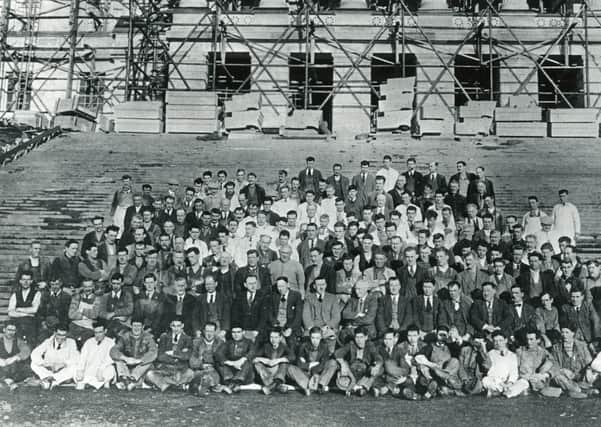Foundation stone is laid at Stormont (1928)


The News Letter noted: “Almost seven years ago,on the 22nd June, 1921, the Parliament of Northern Ireland was opened by His Majesty, who was accompanied the Queen. Now the foundation stone the Parliament House the Administration Buildings has been laid with dignified ceremony by His. Grace the Governor, and within a reasonable time the people Ulster will have an edifice which they will regard as worthy of their Parliament and of the Government to whose wisdom, courage, and fidelity to its principles they owe their present peace and security.”
The editorial continued: “In laying the foundation stone, His Grace said that by that symbolical act he expressed the hope that the building will in due time an example and inspiration to the people, and that ‘inside its walls laws may be enacted, of justice and of honour and peace for our beloved Province’.”
Advertisement
Hide AdAdvertisement
Hide AdIn the view of the News Letter the ceremony symbolised “the permanence of our Parliament”.
“It would be a waste money and of effort to erect a magnificent building as the home of a merely temporary institution,” declared the News Letter.
“The laying of the foundation stone is formal and public declaration that the state of Northern Ireland is firmly established, and that it will never surrender its Parliament, nor allow the relation between it and the Parliament the United Kingdom to be severed.”
The ceremony was also attended by a number of important dignitaries from London including Lord Peel, the First Commissioner of Works, and the Home Secretary, Sir William Joynson-Hicks.
Advertisement
Hide AdAdvertisement
Hide AdOf the later the News Letter commented: “Sir William Joynson-Hicks, as the Prime Minister remarked, has been a firm friend in the difficult task of setting up and perfecting our constitution, and his appointment a member of the Privy Council of Northern Ireland Is recognition of his services.
“The people of Ulster will appreciate what he said about them and their government. The period immediately following the opening of the Parliament was one of anxiety for all who were responsible for the administration of justice, and his tribute to our government for the tact and resolution with which it faced Its task, and the success with which It accomplished It, will be endorsed all who know the facts.”
The News Letter added: “The majority of the people of Ulster are attached to British institutions, while the majority in the Free State are not. Here there is an intense loyalty to the Throne and the Empire which does not exist there; and while there is this vital difference there can be no unity of Ireland.”
Comment Guidelines
National World encourages reader discussion on our stories. User feedback, insights and back-and-forth exchanges add a rich layer of context to reporting. Please review our Community Guidelines before commenting.